Well, I’ve owed y’all some analysis of the last hundred books read for some time now—just over a hundred days, by my count. I can only plead that I’ve been busy with work and stuff, the stuff being a silly NaNoWriMo project, but I have also been reading at a freakishly breakneck pace since I read Book #500, David Caplowitz’s The Poor Pay More (about which you may read slightly more here). So I figure I better knock this analysis post out before I’m telling you I’ve read the next hundred books, eh? [Once again, I do not include those items in the Comics & Graphic Novels category in my book count, though I will include them both in my full list of books read as well as in broken out data points that I will call out in this analysis.]
My reading pace accelerated greatly during this last tranche of a hundred books, moving so rapidly that it took me less than two-and-a-half days to read each book, on average. This was far faster than the pace for the previous hundred, which was just under 3 days per book. This greater than 20% drop in days per book read was associated with fewer pages read overall, by a small (1.15%) amount, though the page rate of 98.85 pages read per day was much, much faster than 80.8 pages read per day during the previous hundred books. An even greater difference—both as a percentage as well in absolute terms—can be seen when comparing the total set of books (including comics and such), as I read 103.21 pages per day during this last set versus a pace of 83.08 during the previous hundred. (For those of you playing the home version of this little math game, I read the last hundred books in 240 days, with a page count for those hundred of 23,725 pages. Including the comics et. al. gives 113 books read in toto during those 240 days, with an aggregate page count of 24,771.)
1 Book Read per 2.49 Days
Such a torrid pace naturally dropped even further the average time per book for the entire set of books read since I began keeping track back in 2015. For both the non-comics and the overall set, the days per book read dropped below 4, the first time the non-comics rate has been so low for the complete set. That low book reading rate dropped to 3.83, with the reading rate for the entire set hitting a new aggregate low of 3.39. Of course, it is unlikely that such a pace can be maintained for long, but we shall see what we shall see. Below is a chart (just like last time) showing the average values for days per book for each of the slices of a hundred books, along with the overall totals. (For those doing all the math at home, the total number of days between the start and Book #500 is 1914 days.)
Average Time to Read a Book
non-Comics All 1st hundred 4.83 3.63 2nd hundred 6.19 5.79 3rd hundred 2.79 2.74 4th hundred 2.97 2.70 5th hundred 2.40 2.12 All 3.83 3.39
I’m still trying to drop my estimated time to completion of my library, which I first started worrying about in this post. At that time I thought I might finish in 2124, on Pearl Harbor Day. Later I crunched the numbers a trifle more fine, and thought I might finish my collection by the year 2108. In that analysis, however, I tried to make allowances for the fact that I was still adding to my collection, and noted that I was buying books faster than I was reading them. Hence the focus on getting my book reading rate as low as possible. We’ll come back to this point later (Hint: COVID-19 restrictions have led to much greater and more frequent sales on online used bookstores. You do the math.) Using the bald attack on the problem, and ignoring the rate of increase to my tiny little collection of books, I have calculated on the back of the envelope, as it were (The actual calculation took much less than the four hours required last time, because in addition to my database of books I have created a spreadsheet with most of the data I need to keep these figures up to date.), I find that I have (or rather had, as I’m writing this with the view of just where I was at at the moment I completed my 500th book, back on September 12 of this year) 8,851 books unread—this is a total figure, and includes the comics excluded from our usual count. Taking the pace of 3.39 days per book read we have just derived above, we can arrive at an EFD (Estimated Finish Date) of … hmm … just a sec … November 7, 2102. So that is only a couple of months more than 82 years—which is a drop from the last calculation of over two-and-a-half years. The date, however, is still in the next century, and I cannot be sure I’ll see this particular century through (or even this decade, if we have many more years like this last one). The specific figures are (for comparison you can see last time’s numbers here):
Reading Rate: 1 Book per 3.39 Days (includes Comics)
Time to Finish Collection: 82 Years and 2 months
Estimated Finish Date (EFD): November 7, 2102
Unfortunately, all of the gains made towards bringing down my Time to Completion seem to have come from the breakneck pace of reading, and are in spite of incontinent book buying. Indeed, during the same time I read 113 books (including the 13 comic books and graphic novels), I seem to have acquired 488 new never-before-read volumes (50 more than during the previous hundred books read). This is obviously troubling, and even more than first appears due to the calculation made in that previous analysis of how long it will take me to read all of my books. There I came around to the following equation, defining how long will take to finish reading my library:
(2.3) ![]()
Formula ![]() simply says that the time
simply says that the time ![]() required to finish reading my library is equal to the initial number of books
required to finish reading my library is equal to the initial number of books ![]() divided by the net consumption rate of books, which is the Reading Rate
divided by the net consumption rate of books, which is the Reading Rate ![]() less the Purchase Rate
less the Purchase Rate ![]() . As I noted in that earlier post, as long as the Reading Rate is greater than the Purchase Rate, I will eventually finish the collection.
. As I noted in that earlier post, as long as the Reading Rate is greater than the Purchase Rate, I will eventually finish the collection.
Now the last time I looked into this formula, I despaired not only because of the hard reality it revealed to me that I’ll never finish reading my library unless I stopped getting new books, but also because it seemed to involve me in some difficult calculations. So I’m just going to simplify everything this time around, because the one thing we don’t need more of this year is despair, right? So I’m just going to take data from that point in time when I first started tracking my books read. Though I received my book database software as a wonderful birthday present from my wife in 2013, it was not until 2015 that I started tracking the books I was reading. (No, it didn’t take me two years to catalog all my books, though I’ll admit that I had had some in storage still at the time I first got the neato scanner and database package.) Anyway, at the point when I first started noting just what books I’d read, I had 7,373 unique titles in my library. From there, given the data I’ve already mentioned above, it is easy to calculate that—oh, wait, I do have to tell you that I’ve read (or had read at the point that I marked Book #500) a total of 565 books in my library, if we include the comics and their ilk—and further, I have to tell you that, as of the date I read Book #500, I had a total of 9,937 books (excluding duplicates) in my collection. Okay, now it is easy to calculate, as I was saying, that at 500 books read (the non-comics count, natch), ![]() is equal to 0.295 and
is equal to 0.295 and ![]() is equal to 1.34 books acquired per day, meaning that
is equal to 1.34 books acquired per day, meaning that ![]() is now … -7,055 days, meaning that I should have finished my collection on May 20, 2001.
is now … -7,055 days, meaning that I should have finished my collection on May 20, 2001.
Okay, that may seem weird, but is actually better than the last time I made this calculation, when I discovered that I should have finished my book collection on April Fool’s Day of 1999. At least I’ve moved up from the Clinton administration to the beginning of the Bush fils years. Basically, this weird and counterintuitive calculation shows that, assuming that my reading and my purchasing paces stay the same, I’ll never finish my library. More will be revealed.
My reading habits during this last hundred books mirror mostly those of the previous. A lot of fiction—mostly Mystery with a fair sprinkling of Science Fiction—and the usual odds and ends of non-fiction books. Now, of course, ‘Nonfiction’ isn’t really a category, unless we want to delineate ‘Lies’ from ‘Truth’, but of course that isn’t ever all that easy to do, especially nowadays. Besides, I like to read a good ‘Wacko’ book now and again, which is my designation for everything to books on mind control and Area 51 to creationism and the 6th and 7th books of Moses, and these surely cannot be all true at the same time. You’ll also see fewer Children’s books in this breakdown, and a concomitant rise in straight up Fiction. But an old Mystery book is a quick read (which was one of my foci in this set of reading) and I also have quite a lot of ’em. As usual, I’ve broken down my reading for your perusal and (one assumes) enjoyment. The full list, including the comics, of books read may be found here. Below you’ll find the breakdown by genre.
Books Read by Genre
Mystery & Thriller 32 Science Fiction & Fantasy 16 Literature & Fiction 13 Children’s Books 8 History 6 Books 5 Other 20
And here is the obligatory chart:
Breaking down the Nonfiction books further (setting aside the Children’s books which always seem relegated into their own peculiar Limbo) give us the following chart:
History 6 Books 5 Poetry, Drama & Criticism 4 Business 3 Health, Mind & Body 3 Wacko 3 Foreign Language 2 Reference 2 D&D 1 Politics & Social Sciences 1 Religion & Spirituality 1
Once more turning to page count analysis, as I did last time and the time before that, I note that though my reading pace increased significantly (as earlier noted), I still see the ‘summer slump’ exhibited in the previous century of books read—although in this case the slump seems to start in March and extends through June. Why this might be I am still unsure, as I do not associate the dates of the slowdown with any noticeable life changes (especially this year those were far and few between and very noticeable (such as my major changes in May and in August)). So I can only assume the slackening in reading pace has more to do with the content than the environment. However, I can think of no easy way to correlate the pages reading rate with the particular books read beyond the gross perusal of the actual books read (Reminder: the full list may be found here.), as I only have the date at which books were read, not an individual reading rate for each volume; that is, some books I took a long time to read, dipping into them occasionally while flying through other novels and the like in a single day. Without tracking daily pages read, or at the very least the date upon which I began reading this or that book (which tiny data point I am still somewhat loath to collect), a gross view of the subject will be all that may be ascertained. To that end, for whatever it may be worth, is a chart showing the cumulative pages read, with a linear trendline which more clearly shows the dip in reading pace during the middle of this reading period.
Taking the first derivative of this data (i.e., casting the data as velocity) yields the following chart:
The overall reading pace for the last hundred books screamed up to 103 pages per day, a huge jump from the 83 pages a day read during the previous hundred.
103.21 Pages Read per Day
Since I read 13 items from the Comics & Graphic Novels category, the above figure drops somewhat when those comics are excluded from the calculation. (I use the total books read for the generally promulgated Pages/Day rate, since the small page count of most comic books is reflected in this stat, whereas it is not in the Days per Book statistic.) Exempting those books gives a slightly lower page per day rate of 98.85 pages per day, which is still much faster than previous records. The lower reading pace for non-comics is shown by the grey line in the figure above.
The page count per book dropped slightly, just over 1%, from last report, from 240 to 237.25 pages per book. If comics are included in this figure, the average becomes 219.2 pages per book (versus 224.3 for this same datapoint from the last series).
Average Book Length: 237.25 Pages
The total number of pages was almost identical to the previous slice, at 24,771, just 96 pages more than the last hundred. With comics etc. removed, we find that 23,725 pages of non-comics were read in this last group, which is 273 fewer than last report. (The average comics etc. page count thus being 80.5 pages per book.)
Total Pages Read (non comics): 23,725
The average rating dropped ever so slightly from that of the previous hundred, falling from 3.79 to 3.76. This was in spite of the fact that I gave a one-star rating for a book for the very first time. (See the worst book ever I read here.) I’m still reading books that I’m thinking of getting rid of, though I still managed to be pleasantly surprised—by the quality of the content, if not by the burgeoning of my shelves. (I also thought of doing some fancy-schmancy weighting of the ratings by taking into account the length of the various books, and then I did! The weighted average rating of (non-comics) turns out to be 3.6 out of 5 stars. So there.)
Average Rating for Books Read: 3.76
But what about the entire set of 500 books? I hear you cry. (I have a more vivid imagination than I give myself credit for.) Though I do want to do some such analysis, I think we’ll just leave that for another day. Okay? Okay. Right now I have to get ready for the next hundred books, and my list of the best books of the year. Hope y’all are all doing well, or at least as well as can be expected. Ta!




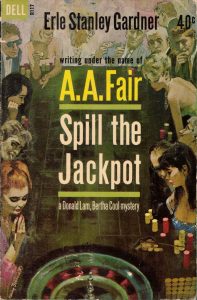
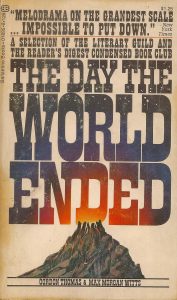
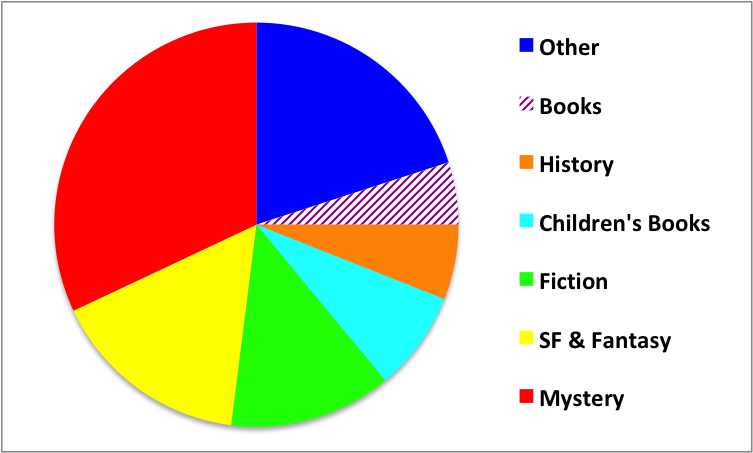
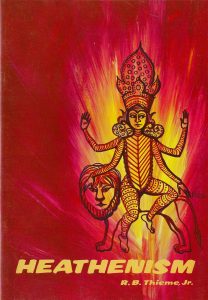
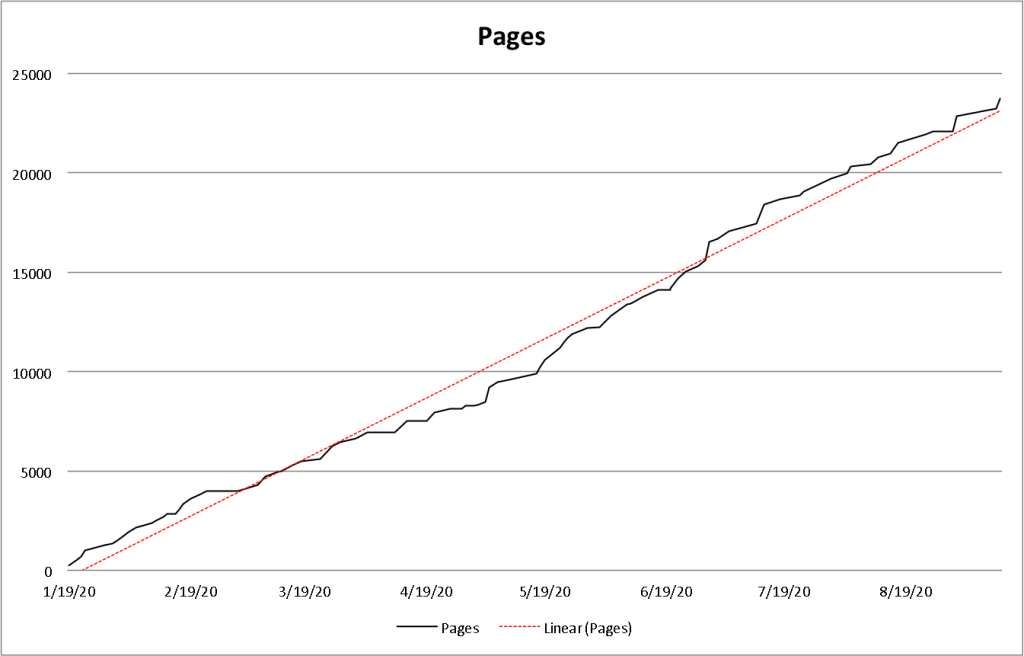


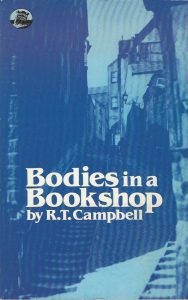

Leave a comment